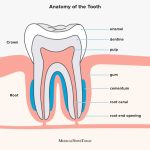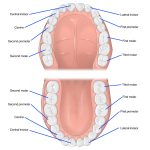Brace Yourself: Effective Ways to Alleviate Pain from Braces
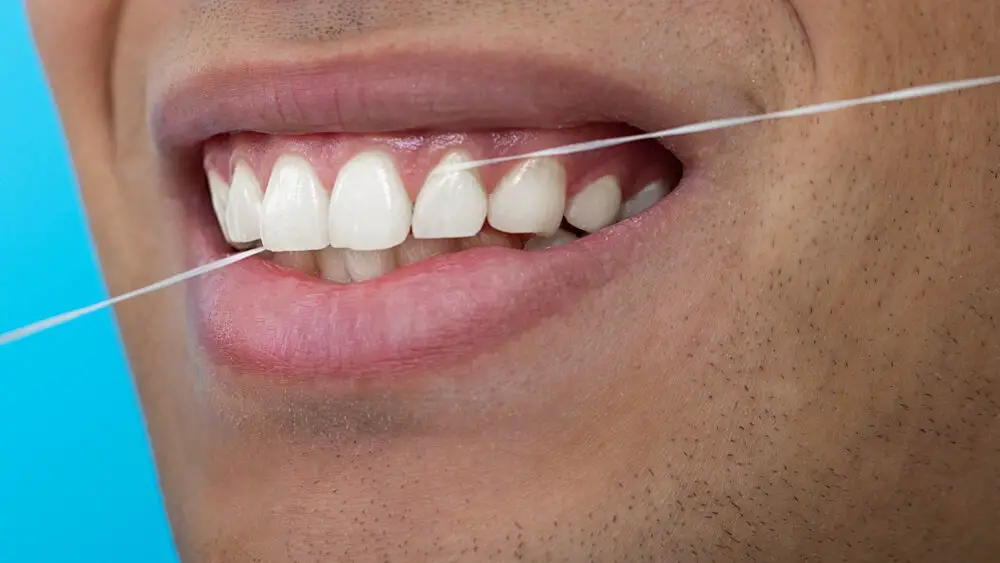
Braces are orthodontic devices that help correct misaligned teeth, overbites, underbites, and other dental problems. They are a common dental treatment for both adults and children, but the process of wearing braces can be painful and uncomfortable. The initial discomfort and soreness caused by braces usually subside after a few days, but some people experience severe pain that can last for weeks. Fortunately, there are effective ways to alleviate pain from braces and make the process of wearing them more bearable. One of the most common ways to alleviate pain from braces is to use over-the-counter pain relief medication such as ibuprofen or acetaminophen. These medications can help reduce inflammation and alleviate pain caused by braces. However, it’s important to follow the recommended dosage and not to exceed the maximum daily limit. In addition to pain relief medication, there are several other effective ways to alleviate pain from braces, including using orthodontic wax, rinsing with salt water, and eating soft foods. In this article, we’ll explore these and other effective strategies for managing pain from braces.
The purpose of the article \Brace Yourself: Effective Ways to Alleviate Pain from Braces\ is to provide readers with practical tips and techniques to reduce discomfort associated with wearing braces. The article recognizes that braces can cause pain, especially during the first few days after installation and after adjustments. The article aims to help readers by providing them with actionable steps that they can take to alleviate pain and discomfort, such as eating soft foods, using over-the-counter pain medications, practicing good oral hygiene, and using orthodontic wax. By providing readers with useful information on how to reduce pain from braces, the article seeks to help people who are undergoing orthodontic treatment to stay comfortable and maintain their oral health.
Braces are orthodontic appliances that are used to straighten teeth and correct bite problems. While braces are highly effective, they can also be quite painful. This is because braces put pressure on the teeth and the surrounding tissues, which can cause discomfort and soreness. Additionally, the brackets and wires of braces can irritate the lips, cheeks, and tongue, leading to sores and ulcers. Some patients may also experience headaches, jaw pain, and difficulty eating and speaking with braces. However, there are several effective ways to alleviate pain from braces, such as using orthodontic wax, taking pain relievers, and eating soft foods.
Understanding the Pain
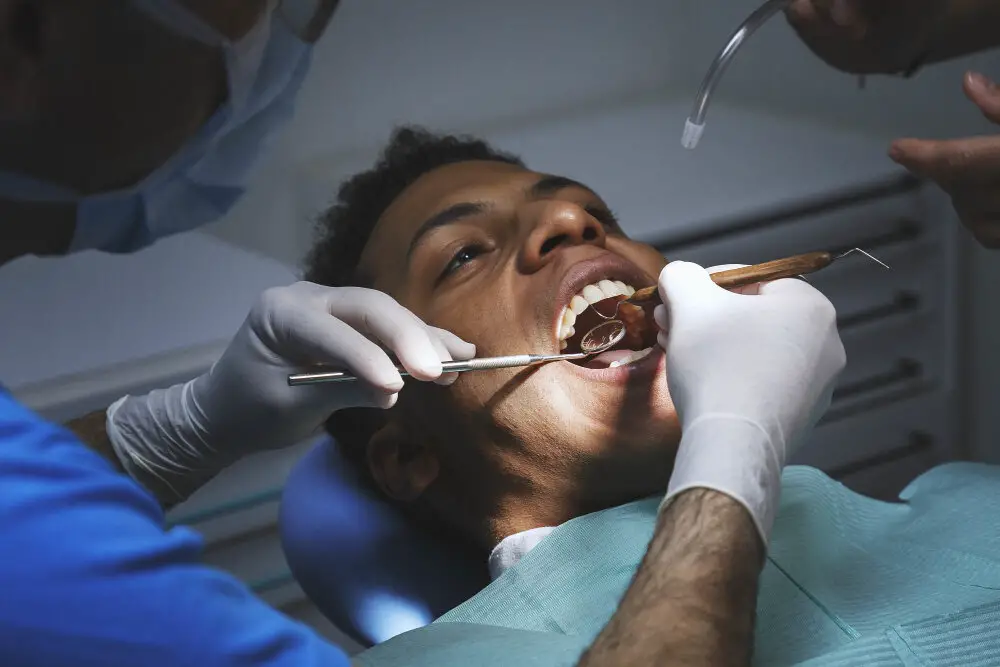
One of the first steps in dealing with pain from braces is to understand the root cause of the discomfort. Often, the pain is caused by the pressure that the braces are exerting on the teeth and the surrounding gums. This pressure is necessary to move the teeth into the correct position, but it can be uncomfortable, especially in the first few days or weeks after the braces are put on. In addition to pressure, the pain can also be caused by the friction between the braces and the sensitive tissues of the mouth. The brackets and wires of the braces can rub against the cheeks, lips, and tongue, causing irritation and soreness. Understanding the pain is important because it helps you to manage your expectations and take appropriate steps to alleviate the discomfort. For example, if you know that the pain is caused by pressure, you may be able to take over-the-counter pain medication or use cold compresses to reduce inflammation and ease the discomfort. If the pain is caused by friction, you may be able to use orthodontic wax to create a barrier between the braces and the sensitive tissues of the mouth. By understanding the pain and its causes, you can take a proactive approach to managing your discomfort and making the process of getting braces more bearable.
Braces are an effective orthodontic treatment to straighten teeth and improve the overall appearance of one’s smile. However, they can also cause discomfort and pain. This is mainly because braces place pressure on the teeth and gums to shift them into the desired position. The wires and brackets can rub against the inner cheeks and lips, causing soreness and irritation. Additionally, after an adjustment, patients may experience some discomfort as their teeth adjust to the new pressure. Pain from braces can be managed with various techniques, including over-the-counter pain relievers, using orthodontic wax to cover brackets, and eating soft foods.
Braces are an effective solution for correcting misaligned teeth, but they come with a fair share of discomfort. The pain associated with braces can vary depending on the type of braces and the individual’s tolerance level. The most common type of pain is soreness, typically experienced after an adjustment or tightening of the braces. Another type of pain is caused by the brackets and wires rubbing against the soft tissue inside the mouth, leading to irritation and sometimes ulcers. In some cases, the pressure exerted by the braces can cause headaches and jaw pain. Despite the different types of pain associated with braces, there are various ways to alleviate them and make the journey to a perfect smile more comfortable.
When it comes to pain from braces, it is important to understand that the level and duration of pain can vary from person to person. Generally speaking, the initial discomfort can last for a few days up to a week, as your teeth and gums adjust to the pressure of the braces. However, some individuals may experience more significant pain that can last for several weeks. It’s important to communicate with your orthodontist if you are experiencing prolonged discomfort, as they may be able to offer additional solutions to alleviate your pain. Additionally, there are several effective methods to alleviate pain from braces, such as using orthodontic wax, taking over-the-counter pain relievers, and eating soft foods.
OvertheCounter Pain Relief
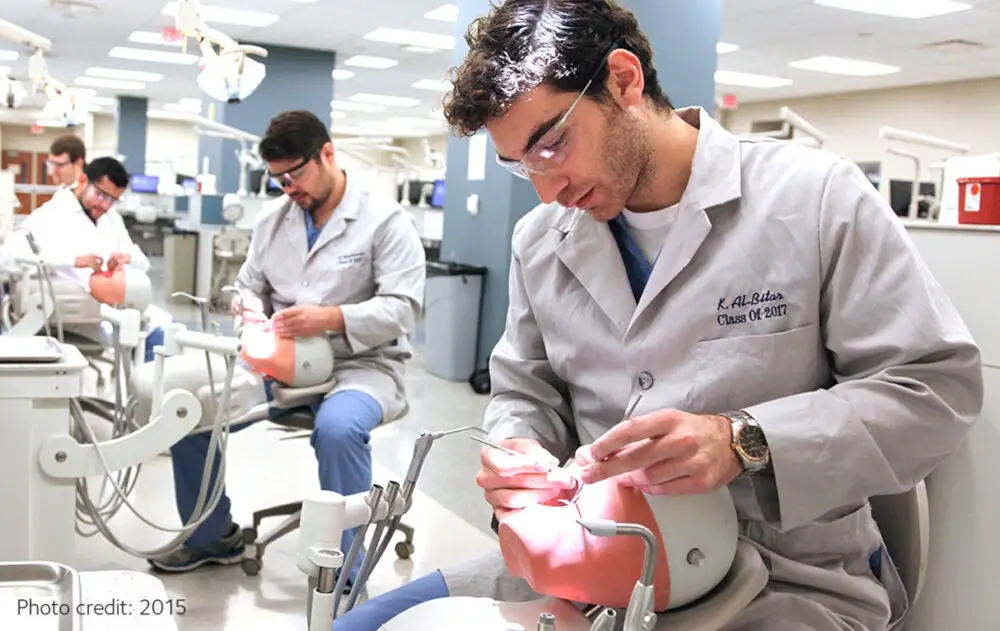
Over-the-counter pain relief can be a great way to alleviate pain from braces. There are many different types of pain relief available, including topical creams, gels, and sprays, as well as oral medications such as ibuprofen or acetaminophen. These medications work by reducing inflammation and blocking pain signals to the brain, helping to reduce pain and discomfort caused by braces. When choosing an over-the-counter pain relief medication, it is important to read the label carefully and follow the recommended dosage instructions. It is also important to consult with your orthodontist or dentist before taking any medication, especially if you have any allergies or medical conditions. Additionally, it is important to remember that over-the-counter pain relief should only be used as directed, and should not be used as a long-term solution for pain management. If you are experiencing persistent or severe pain from your braces, it is important to speak with your orthodontist or dentist to discuss additional treatment options.
There are several types of over-the-counter pain relief options available to alleviate pain caused by braces. Nonsteroidal anti-inflammatory drugs (NSAIDs) such as ibuprofen, aspirin, and naproxen sodium are effective in reducing inflammation and pain. Acetaminophen, another common pain reliever, works by blocking pain signals to the brain. Topical analgesics like numbing gels and creams provide a localized pain relief by numbing the area. Additionally, cold compresses and heat therapy can also help to reduce pain and swelling. It is important to consult with a healthcare professional before taking any medication to ensure proper dosage and avoid any potential side effects.
Braces are an effective treatment option for correcting misaligned teeth and improving dental health, but they come with their own set of benefits and drawbacks. On the positive side, braces can significantly improve the appearance of one’s smile, boost self-confidence, and improve oral health by reducing the risk of tooth decay and gum disease. However, braces can also cause discomfort and pain, especially in the initial stages of treatment. Additionally, braces require diligent oral hygiene practices and dietary restrictions to prevent damage or decay. While the benefits of braces are numerous, it’s important to weigh them against the potential drawbacks to decide if they’re the right treatment option for your dental needs.
When it comes to pain relief for braces, there are several options available. Over-the-counter pain relievers, such as acetaminophen or ibuprofen, can be effective in reducing mild to moderate discomfort. However, if the pain is more severe, prescription-strength pain medications may be necessary. Additionally, topical numbing agents, like Orajel or benzocaine, can provide temporary relief for sore spots in the mouth. For those who prefer a more natural approach, applying a warm or cold compress to the affected area can help to alleviate discomfort. Ultimately, the choice of pain relief will depend on the individual’s level of pain and personal preferences. It is important to consult with a healthcare professional before taking any medication or using any topical treatment.
Home Remedies

Home remedies can be a great way to alleviate pain from braces without having to rely on medication. One of the most effective home remedies is saltwater rinse. You can mix half a teaspoon of salt with eight ounces of warm water and use the mixture to rinse your mouth for a minute or two. Saltwater rinse can help to reduce inflammation and prevent infection, which are common problems associated with braces. Another home remedy that can be effective in relieving pain from braces is the use of a warm compress. You can use a warm towel or heating pad on the affected area for 15-20 minutes at a time. This can help to increase blood flow to the area and reduce pain and discomfort. It is important to note that you should never use a hot compress as this can cause damage to the braces or your teeth. Home remedies can be a great way to alleviate pain from braces, but it is important to consult with your orthodontist if you are experiencing severe pain or discomfort.
There are a variety of home remedies that can help alleviate the pain caused by braces. One of the most effective remedies is using ice packs to numb the area around the braces. Another effective home remedy is using warm saltwater to rinse your mouth, which can help reduce inflammation and soreness. Additionally, applying clove oil directly to the affected area can provide relief due to its natural anesthetic properties. Over-the-counter pain relievers such as ibuprofen can also be effective in reducing pain and inflammation. Lastly, practicing good oral hygiene and avoiding hard or chewy foods can also help prevent further discomfort. By incorporating these home remedies into your daily routine, you can effectively manage pain associated with braces and improve your overall oral health.
Braces are essential devices that help to realign teeth and correct bite issues. However, they can cause discomfort, pain, and soreness. There are several remedies that can alleviate the pain caused by braces. One common remedy is to use orthodontic wax, which creates a protective barrier between the braces and the soft tissues of the mouth. Another remedy is to use pain relievers, such as acetaminophen or ibuprofen, to reduce the inflammation and pain. Cold compresses can also help to numb the affected area and reduce pain and swelling. While these remedies are effective, they also have their drawbacks. Orthodontic wax can be messy and difficult to apply, pain relievers can have side effects, and cold compresses can be uncomfortable and inconvenient. It is important to discuss the benefits and drawbacks of each remedy with your orthodontist to find the best solution for your needs.
When it comes to alleviating pain from braces, there are various remedies to choose from. One effective remedy is to use orthodontic wax. This remedy is best used for relieving discomfort caused by brackets or wires that are rubbing against the cheeks, lips, or gums. Another remedy is to use pain relievers such as ibuprofen or acetaminophen. These remedies are useful for reducing pain and inflammation caused by the pressure of the braces. Additionally, applying a warm compress to the affected area can also help alleviate pain by promoting blood flow and reducing swelling. It is important to consult with your orthodontist to determine which remedy is best suited for your specific needs.
Lifestyle Changes
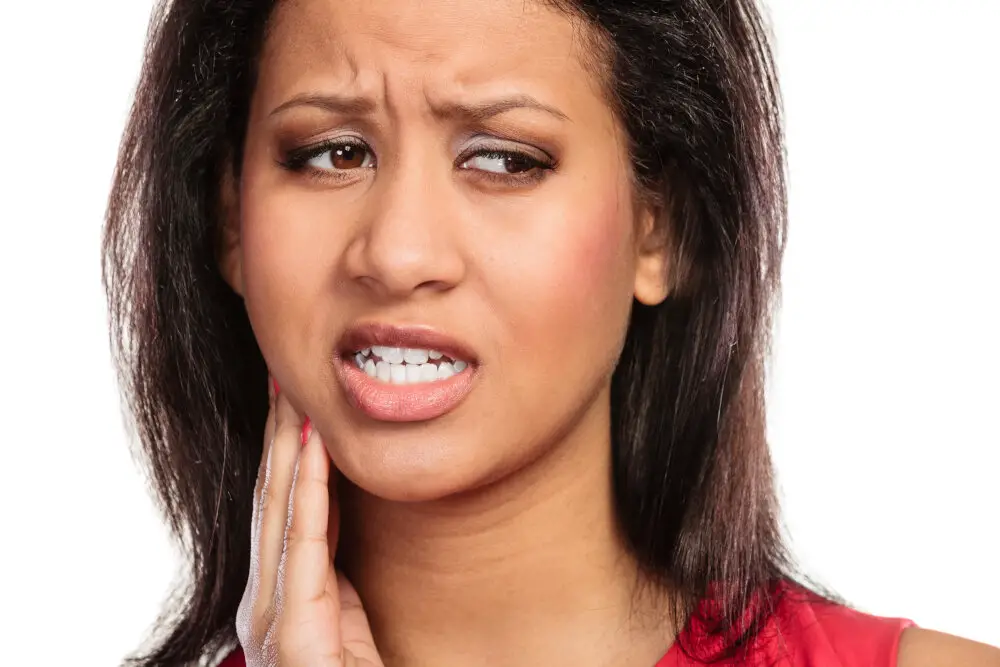
Making lifestyle changes can also help alleviate pain from braces. One of the most important changes is to modify your diet. Avoid hard and sticky foods that can damage your braces and cause pain. Instead, opt for soft and easy-to-chew foods like soup, mashed potatoes, and yogurt. It is also important to maintain good oral hygiene by brushing and flossing regularly to prevent any food particles from getting stuck in the braces, which can cause discomfort and pain. Additionally, reducing your sugar intake can help prevent tooth decay, which can further exacerbate pain and discomfort while wearing braces. Another lifestyle change that can help alleviate pain from braces is to practice good posture. Slouching can put extra pressure on your braces and cause pain and discomfort. Therefore, it is important to maintain good posture by sitting up straight and keeping your shoulders back. Regular exercise can also help alleviate pain by reducing tension in your muscles and promoting blood flow to the affected areas. Try low-impact exercises like yoga or swimming, which can help increase flexibility and reduce stress on your joints and muscles. Finally, getting enough sleep is crucial for your body to repair and heal itself. Aim for at least 7-8 hours of sleep per night to help alleviate pain and promote overall wellness.
Braces are an effective way to straighten teeth, but they can be quite painful, especially during the initial stages of the treatment. However, there are certain lifestyle changes that can help alleviate the pain and make the experience more bearable. Firstly, patients can opt for soft foods that require minimal chewing to reduce strain on the teeth. Secondly, rinsing the mouth with warm salt water can also provide relief and promote healing. Additionally, patients can use over-the-counter pain relievers and apply ice packs to the affected area to reduce swelling and discomfort. Finally, practicing good oral hygiene by brushing and flossing regularly can prevent any infections and promote overall dental health.
Braces are a common orthodontic treatment for correcting misaligned teeth and bite issues. While braces can provide numerous benefits such as improved oral health, enhanced appearance, and increased confidence, they also come with a few drawbacks. One of the significant benefits of braces is that they can fix dental problems that could lead to more severe issues in the future, like gum disease, tooth decay, and speech difficulties. Additionally, braces can boost a person’s self-esteem by giving them straight and beautiful teeth. However, braces can also cause pain, discomfort, and irritation, especially during the initial stages of treatment. They can also restrict certain foods and make it challenging to clean teeth, leading to plaque buildup and bad breath. Overall, the benefits of braces outweigh the drawbacks, and the discomfort can be alleviated through various tips and tricks.
When it comes to implementing changes to alleviate pain from braces, timing is everything. For instance, applying orthodontic wax immediately after a bracket or wire adjustment can help prevent discomfort caused by friction between the braces and the soft tissues of the mouth. Meanwhile, using a cold compress can be effective in reducing swelling and inflammation, but it’s best to apply it within the first 24 to 48 hours after the adjustment. Additionally, when it comes to changing the rubber bands, it’s recommended to do it every 3 to 4 weeks or as advised by the orthodontist to ensure that the teeth are moving in the right direction without causing excessive discomfort. By being mindful of timing, you can make the necessary changes to alleviate pain from braces in the most effective way possible.
The article \Brace Yourself: Effective Ways to Alleviate Pain from Braces\ provides several practical and effective ways to reduce the discomfort that comes with wearing braces. The author suggests starting with over-the-counter pain medication such as ibuprofen or acetaminophen, as well as using a warm compress or ice pack to reduce swelling. It is also recommended to avoid hard or sticky foods that can damage the braces and cause further pain. The article also advises practicing good oral hygiene by brushing and flossing regularly and using a mouthwash to prevent infections. Finally, the author suggests talking to your orthodontist about any persistent pain or discomfort, as they may be able to adjust the braces to provide relief. Overall, the article provides helpful tips for anyone wearing braces who wants to alleviate the discomfort that comes with them.
In conclusion, experiencing pain from braces is common, but there are several effective ways to alleviate it. It is important to keep up with proper oral hygiene, including brushing and flossing regularly, as this can help prevent irritation and inflammation. Additionally, utilizing orthodontic wax and over-the-counter pain relievers can provide temporary relief. It is also important to avoid hard or sticky foods that can damage the braces and cause further discomfort. Finally, if the pain persists or becomes severe, it is important to contact your orthodontist for further guidance. With these tips in mind, managing pain from braces can be made more manageable and allow for a smoother orthodontic journey.
Conclusion
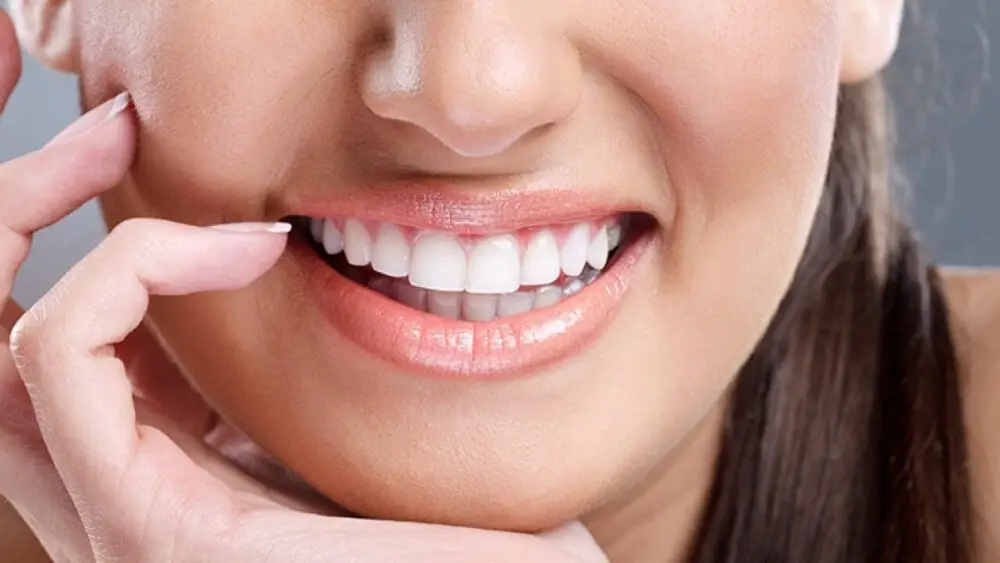
In conclusion, while braces can cause discomfort and pain, there are several effective ways to alleviate the discomfort. From using orthodontic wax and pain relievers to eating soft foods and practicing good oral hygiene, there are various strategies that can help reduce the pain and make the experience of wearing braces more comfortable. Additionally, seeking support from family and friends, and communicating with your orthodontist about any concerns or issues can also help make the process smoother. While the journey of wearing braces may be challenging, with the right mindset and approach, it is possible to overcome the pain and achieve a beautiful, healthy smile.


